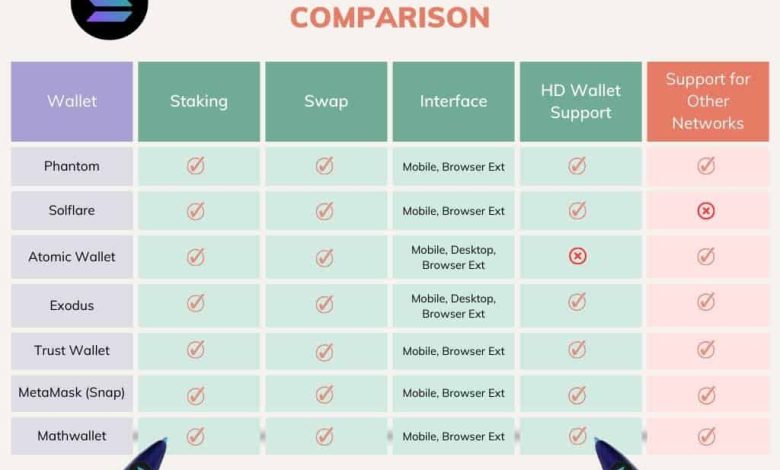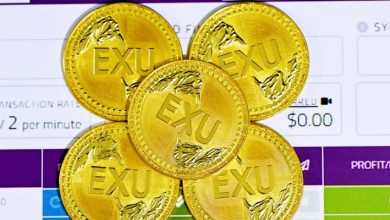Comparing Desktop Wallets

- Introduction to Desktop Wallets
- Key Features to Look for in Desktop Wallets
- Security Measures in Popular Desktop Wallets
- User-Friendly Interface of Desktop Wallets
- Comparing Desktop Wallets for Cryptocurrency Storage
- Pros and Cons of Using Desktop Wallets
Introduction to Desktop Wallets
Desktop wallets are a type of cryptocurrency wallet that is installed on a personal computer. These wallets provide users with a secure way to store, send, and receive digital assets. One of the main advantages of desktop wallets is that they give users full control over their funds, as the private keys are stored locally on the user’s device. This means that users do not have to rely on third parties to access their funds, which can help to increase security and privacy.
Desktop wallets come in different forms, including full node wallets, light wallets, and multi-asset wallets. Full node wallets download the entire blockchain to the user’s device, providing a high level of security and decentralization. Light wallets, on the other hand, do not require users to download the entire blockchain, making them faster and more convenient to use. Multi-asset wallets support a variety of cryptocurrencies, allowing users to manage different digital assets in one place.
When choosing a desktop wallet, it is important to consider factors such as security, user-friendliness, and the range of features offered. Some popular desktop wallets include Electrum, Exodus, and Atomic Wallet. These wallets are known for their strong security measures, intuitive interfaces, and support for a wide range of cryptocurrencies. By comparing the features and benefits of different desktop wallets, users can find the one that best meets their needs and preferences.
Key Features to Look for in Desktop Wallets
When choosing a desktop wallet for your cryptocurrency needs, there are several key features to consider. These features can help ensure that your funds are secure and easily accessible. One important feature to look for is **security**. Make sure the wallet offers **encryption** to protect your private keys and has a strong **reputation** for keeping funds safe. Another important feature is **user-friendliness**. A desktop wallet should be easy to navigate and understand, even for beginners. **Compatibility** with different operating systems is also crucial. Ensure that the wallet works well on your preferred system, whether it’s Windows, Mac, or Linux. **Backup and recovery** options are essential in case your computer crashes or is lost. Look for wallets that offer **backup** phrases or seed words to restore your funds. **Multi-currency support** is another feature to consider. If you hold various cryptocurrencies, you’ll want a wallet that can store multiple types. Finally, **customer support** is crucial. Choose a wallet that offers responsive customer service in case you encounter any issues. By considering these key features, you can select a desktop wallet that meets your needs and keeps your funds secure.
Security Measures in Popular Desktop Wallets
When it comes to security measures in popular desktop wallets, users can expect a range of features designed to protect their digital assets. Some of the most common security measures found in desktop wallets include:
- **Encryption:** Most desktop wallets offer encryption to secure the private keys stored on the user’s device. This helps prevent unauthorized access to the wallet and ensures that only the rightful owner can access their funds.
- **Backup and recovery:** Many desktop wallets allow users to create backups of their wallet data, including private keys and transaction history. This can be crucial in case the user’s device is lost, stolen, or damaged.
- **Two-factor authentication:** Some desktop wallets support two-factor authentication, which adds an extra layer of security by requiring users to provide a second form of verification, such as a code sent to their mobile device, in addition to their password.
- **Multi-signature support:** Certain desktop wallets offer multi-signature support, which requires multiple private keys to authorize a transaction. This can help prevent unauthorized transactions and protect against theft.
- **Hierarchical Deterministic (HD) wallets:** HD wallets generate a new public address for each transaction, making it more difficult for third parties to track a user’s transaction history. This can help enhance privacy and security.
By incorporating these security measures into their desktop wallets, developers aim to provide users with a secure and reliable way to store and manage their cryptocurrencies. It is important for users to choose a wallet that offers the right balance of convenience and security to meet their individual needs.
User-Friendly Interface of Desktop Wallets
Desktop wallets offer a **user-friendly interface** that makes it easy for users to manage their cryptocurrency holdings. The intuitive design allows for seamless navigation and quick access to essential features such as sending and receiving funds, viewing transaction history, and managing security settings. This simplicity is especially beneficial for beginners who may not be familiar with the intricacies of cryptocurrency wallets.
One of the key advantages of desktop wallets is the ability to store multiple cryptocurrencies in a single application. This means users can manage all their digital assets in one place, streamlining the process and reducing the need to switch between different wallets. Additionally, desktop wallets often come with built-in exchange integrations, allowing users to trade cryptocurrencies directly from the wallet interface.
Another important aspect of the **user-friendly interface** of desktop wallets is the customization options available to users. From choosing different themes and layouts to setting up personalized alerts and notifications, desktop wallets allow for a tailored user experience. This level of customization can enhance the overall user satisfaction and make managing cryptocurrencies more enjoyable.
Overall, the **user-friendly interface** of desktop wallets plays a crucial role in attracting and retaining users. By providing a seamless and intuitive experience, desktop wallets make it easier for individuals to engage with cryptocurrencies and take control of their financial assets. Whether you are a beginner looking to get started with cryptocurrency or an experienced trader seeking a convenient storage solution, desktop wallets offer a user-friendly experience that caters to a wide range of users.
Comparing Desktop Wallets for Cryptocurrency Storage
When it comes to storing cryptocurrency, desktop wallets are a popular choice among users. These wallets offer a convenient way to securely store and manage digital assets on a personal computer. There are several desktop wallets available in the market, each with its own set of features and security measures. In this section, we will compare some of the top desktop wallets to help you make an informed decision.
- Electrum: Electrum is a lightweight desktop wallet that is known for its speed and simplicity. It offers features such as cold storage and multi-signature support, making it a secure option for storing cryptocurrency.
- Exodus: Exodus is a user-friendly desktop wallet that supports a wide range of cryptocurrencies. It has a built-in exchange feature that allows users to easily swap between different digital assets.
- Atomic Wallet: Atomic Wallet is a decentralized desktop wallet that gives users full control over their private keys. It supports over 300 cryptocurrencies and has a built-in atomic swap feature for exchanging assets without a third party.
When choosing a desktop wallet for cryptocurrency storage, it is important to consider factors such as security, ease of use, and supported cryptocurrencies. By comparing the features of different wallets, you can find the one that best suits your needs and preferences.
Pros and Cons of Using Desktop Wallets
Desktop wallets have their own set of advantages and disadvantages that users should consider before choosing this type of wallet for storing their cryptocurrency. Here are some pros and cons of using desktop wallets:
- Pros:
- Security: Desktop wallets are considered more secure than online wallets as they are not connected to the internet all the time, reducing the risk of hacking.
- Control: Users have full control over their private keys and funds when using a desktop wallet, providing a sense of autonomy.
- Convenience: Desktop wallets are easy to access and use, making them a convenient option for storing and managing cryptocurrency.
- Privacy: Desktop wallets offer a higher level of privacy compared to online wallets, as users’ information is not stored on external servers.
- Cons:
- Security Risks: While desktop wallets are more secure than online wallets, they are still vulnerable to malware and hacking if the user’s computer is compromised.
- Accessibility: Desktop wallets are only accessible from the device on which they are installed, limiting access for users who need to manage their funds on the go.
- Backup: Users are responsible for backing up their desktop wallet’s data, as losing access to the wallet file could result in the loss of funds.
- Updates: Desktop wallets require regular updates to ensure they are running the latest security features, which can be time-consuming for some users.



